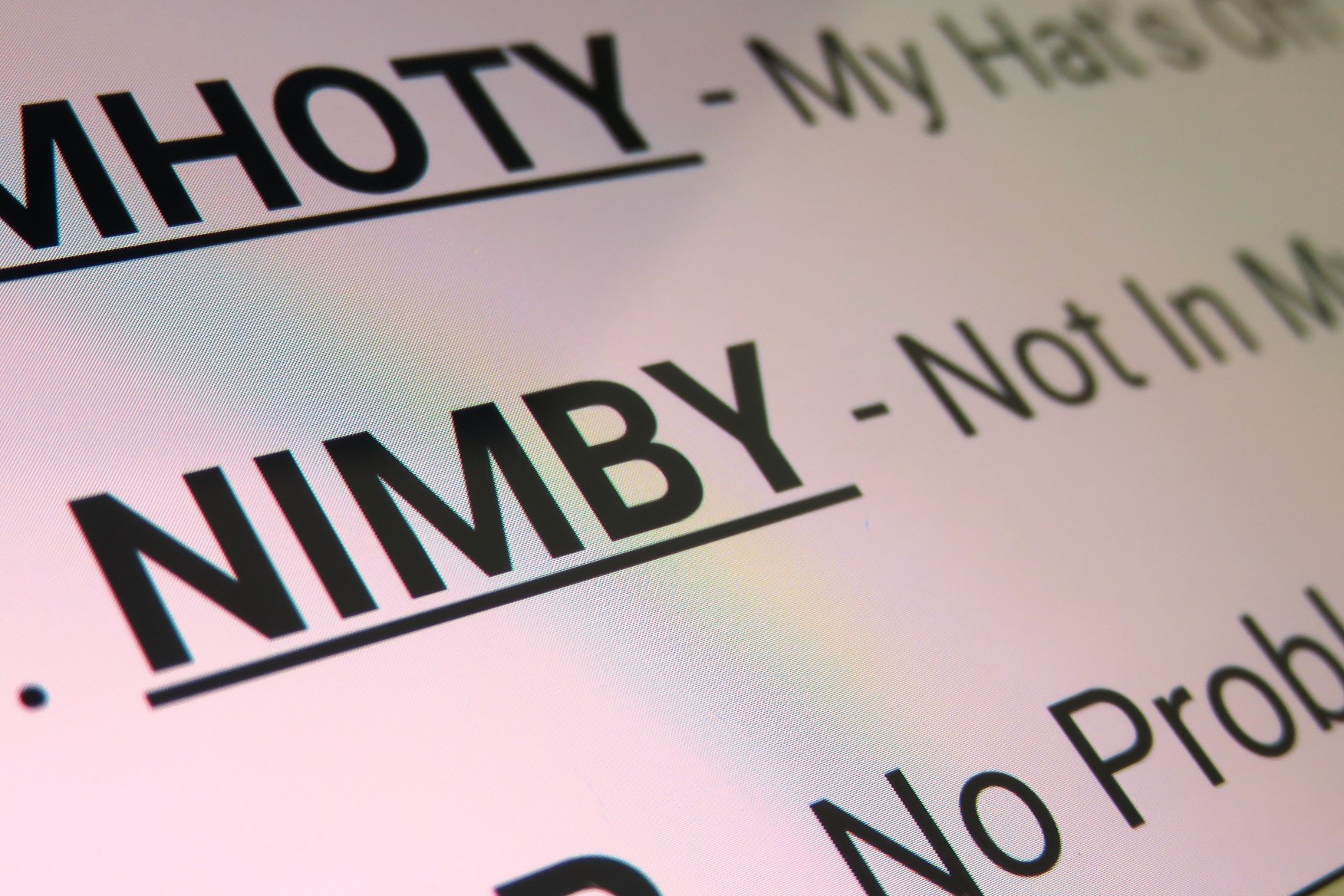
Credit: iStock tzahiV
NIMBY vs YIMBY
Dr Kristian Niemietz, Head of Political Economy at the Institute of Economic Affairs, recently written that pro-housing voters do not reward development-friendly politicians come election time; while anti-development voters support NIMBY politicians at the ballot box.
And this is why no party, regardless of hue, promotes development and useful planning reform in their manifestos, because there are no votes in it.
NIMBY voters punish anyone in favour of progressive housing policies, while taking very few other issues into consideration, and always reward NIMBY politicians. Those voters who favour more development and would benefit from progressive policies – mostly people under 40 – don’t factor that into their voting choices and even vote NIMBY when it’s not in their interest to do so.
These include the one in three households in the UK who live in rented accommodation and would obviously benefit from lower rents, or the chance of becoming homeowners; and the hundreds of thousands of thirtysomethings and younger under who still live with their parents.
So why hasn’t the YIMBY (Yes in My Back Yard) bloc coalesced in the same way as the NIMBY?
This, says Niemietz, is because those voters haven’t made a connection between housing costs and housebuilding. Not only would more housebuilding reduce their rents and make it easier for them to buy houses, it leads to lower government spending (through reduced social costs associated with housing), thus potentially lower taxes, increased productivity and greater socio-economic mobility. Building, as we all know, is one of the great engines of the economy and what is good for building generally works out as being good for everyone else too.
Obviously, the industry can’t expect the current regime to do anything about this. It has shown itself unable to resist pressure applied by its NIMBY MPs and members, and all of its interventions in the market appear to be harmful. As reported last month, Keir Starmer is smiling benevolently at the sector with claims not to be a building “blocker” yet there is nothing to suggest that, should he become PM, he won’t fold in the face of pressure from his own demonstrably NIMBY MPs.
You wonder where housebuilding’s ‘trade associations’ have been in all this? Yes: some very good research is undertaken and some heavy hitting papers published, yet none of that has shifted the needle one degree with Government in producing industry friendly policies. (And let’s be honest about Help to Buy or the stamp duty holiday here: they were fun while they lasted, yet have just added fuel to the current economic fire). We’re sure they’d claim they lobby Parliament, and lobby Parliament hard, on behalf of housebuilding, but long experience shows that often ‘lobbying’ is more about hob-nobbing and taking tea on the terrace of the House, while everybody tuts, shakes their heads and wishes something could be done.
Perhaps instead, Niemietz’s view of the YIMBY should be taken on board and campaigning shouldn’t revolve around G&Ts in SW1A, but more on building an angry coalition of voters, aware of what better planning and more housebuilding will do for them, and one prepared to both punish and reward politicians accordingly as its NIMBY opposition does already.
